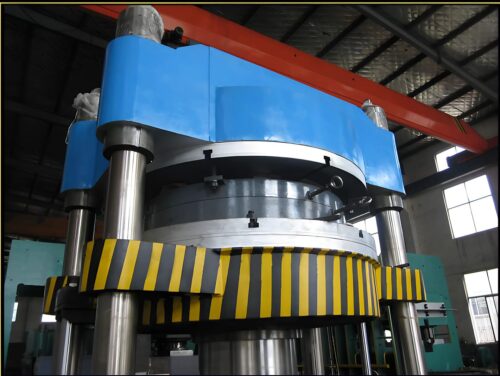How Can a Solid Tyre Machine Improve Manufacturing Efficiency?

How Can a Solid Tyre Machine Enhance Manufacturing Efficiency?
A solid tyre manufacturing company can significantly benefit from the implementation of a solid tyre machine, as the performance of machinery and productivity are vital components in industrial manufacturing settings. A solid tyre machine stands out as a key piece of equipment that contributes to improved efficiency. Unlike pneumatic tyres, solid tyres are constructed without air, rendering them puncture-proof and extending their lifespan.
1. Accelerated Production Rates:
Traditional tyre manufacturing methods can be time-consuming, particularly during large-scale production. In contrast, a solid tyre machine automates many of the processes, allowing for quicker operations. This enables manufacturers to increase output while simultaneously meeting the rising expectations of their customers.
2. Enhanced Quality Consistency:
The advantages of integrating a solid tyre machine into the manufacturing workflow include operational uniformity. Manual production methods are often plagued by human error, leading to variations in tyre quality and performance. By ensuring consistent quality, manufacturers can minimize waste, reduce the need for rework, and enhance customer satisfaction, thereby improving overall efficiency.
3. Decreased Labor Expenses:
Utilizing a solid tyre machine in the production process reduces the amount of manual labour required, resulting in lower labour costs. This reduction not only cuts expenses but also allows employees to focus on other critical tasks within the factory.
4. Minimized Material Waste:
The use of solid tyre machines leads to a decrease in overall material consumption. These machines require fewer materials for production, particularly when working with expensive rubber compounds typically used in solid tyres. Consequently, manufacturers can produce a greater number of tyres while utilizing the same inventory.
5. Energy Efficiency:
Modern solid tyre manufacturing machines are increasingly integrated with energy-efficient technologies, significantly enhancing the overall productivity of the production line. These machines not only operate with high effectiveness but also consume less energy. As energy expenses rise, minimizing electricity consumption becomes a crucial consideration for optimizing efficiency. Presently, the implementation of energy-efficient machinery leads to reduced operational costs, making it more economical to incorporate such equipment into the manufacturing process.
6. Improved Safety:
Prioritizing safety is essential for any manufacturing enterprise. Advanced equipment, such as solid tyre machines, plays a vital role in bolstering safety protocols by minimizing the handling of materials and tools. This reduction in manual intervention decreases the likelihood of accidents stemming from oversight, carelessness, or fatigue. Furthermore, the inherent non-pneumatic design of solid tyres contributes to a safer operational environment, mitigating the risks associated with tyre failures during production or subsequent installation on vehicles.
7. Longer Machine Lifespan:
A well-maintained solid tyre machine typically enjoys a lifespan that extends beyond a single year. The reduced likelihood of malfunctions and the need for repairs facilitate uninterrupted production, thereby improving manufacturing efficiency. Additionally, regular maintenance and timely upgrades further prolong the machine’s operational life, resulting in fewer replacements over time.
8. Customization Capabilities:
Production Flexibility Certain solid tyre machines offer clients the ability to customize their equipment, allowing for the production of tyres in various sizes and shapes. This flexible manufacturing capability empowers the company to deliver tailored products that align with consumer demands, opening new market opportunities while simultaneously reducing unnecessary expenses.
conclusion:
A solid tyre machine serves as a powerful tool capable of significantly enhancing manufacturing productivity. By improving efficiency, ensuring quality, and reducing costs associated with labor and materials, this machine enables various businesses to thrive in today’s competitive economic landscape. Furthermore, contemporary machines are designed to be more energy-efficient and safer, contributing to both cost savings and a secure working environment.

 Compression Molding
Compression Molding